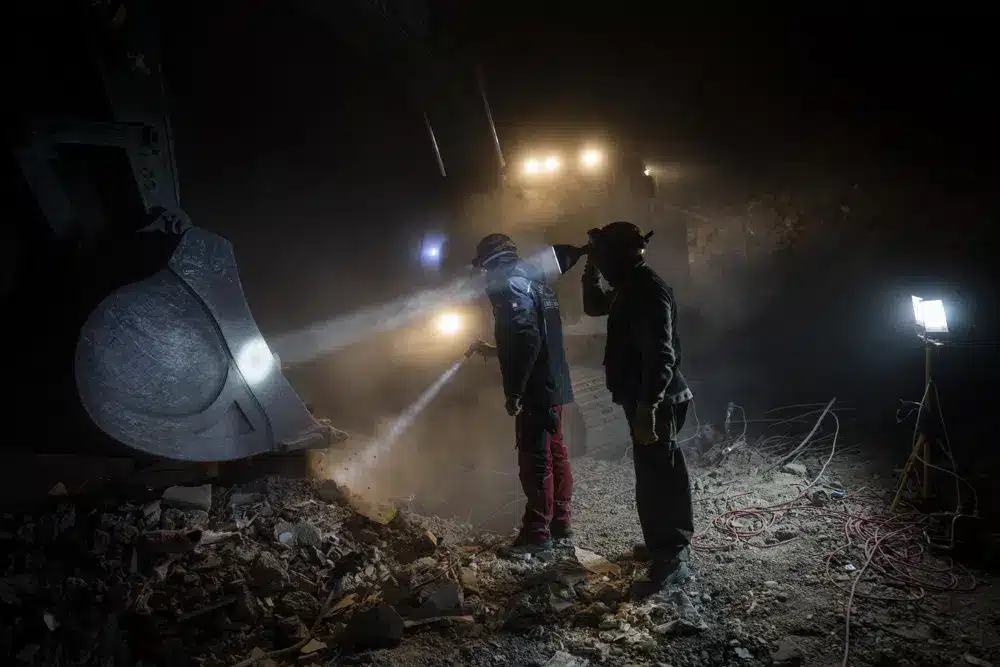After 12 days of search and rescue operations in Turkey, a foreign team from Kyrgyzstan was able to pull a couple and their son alive from under a collapsed apartment building in the southern Turkish city of Antakya. The search and rescue operation in Turkey’s Antakya took place on Saturday, and the family was transferred to ambulances after being found. Unfortunately, the couple’s 12-year-old son passed away in the hospital.
The earthquake, which measured 7.8 on the Richter scale, hit Turkey and Syria on February 6, causing widespread devastation in the region. Hatay province, where Antakya is located, was one of the hardest-hit areas. The death toll in Turkey has now reached 40,642, and Syrian authorities report that 5,800 people died there, taking the total deaths to over 46,000. Many people are still unaccounted for, and the number of casualties is expected to continue to rise.
Why search and rescue operations in Turkey will end now
Search and rescue operations in Turkey will end today, according to the head of the country’s disaster response agency. Tremors continue to shake the country, with a 5.2-magnitude earthquake striking central Turkey on Saturday. However, there were no immediate reports of further damage.
US Secretary of State Antony Blinken is scheduled to make a helicopter tour of the affected areas after arriving in Turkey on Sunday for an official visit. He is expected to hold discussions with Turkish officials about how the US can help relief efforts. The focus has turned from rescue to long-term humanitarian support for survivors in Turkey as well as neighbouring Syria, where the movement of aid has been hindered by the country’s long-running civil war.
Despite the co-operation of the Syrian and Turkish governments, the World Food Programme director David Beasley says its operations are being hampered in north-west Syria. The agency last week said it was running out of stocks in the rebel-held region and called for more border crossings to be opened from Turkey. The situation is complicated by the fact that the area is controlled by insurgents at war with forces loyal to President Bashar Al Assad.
The survivors of the earthquake will need help for months to come, with so much crucial infrastructure destroyed. Medics and experts are also concerned about the possible spread of infection in the quake-hit areas after tens of thousands of buildings collapsed, and sanitation infrastructure was damaged. Turkish Health Minister Fahrettin Koca says that although there has been a rise in intestinal and upper respiratory infections, the numbers do not pose a serious threat to public health. Turkey vowed last week to investigate thoroughly anyone suspected of responsibility for the collapse of buildings in the country’s devastating earthquakes nearly one week ago and has already ordered the detention of 113 suspects.
Image Credit: AP Photo/Bernat Armangue



















